Credits
-
Pou Auaha / Creative Directors
Matty Burton, Gary Steele, Rory McKechnie, Zac Lancaster, Josep Jover -
Pou Rautaki / Strategic Lead
Daisy Conroy-Botica
-
Ringatoi Matua / Design Director
Dean Pomfrett -
Kaituhi Matua / Copywriter Lead
Jacob Newton
-
Ngā Kaimahi / Team Members
Priya Patel, Nikki McKelvie, Claudia Macdonald, Jo Martin, Ellen Pye, Kate Heatley, Patrick Stone, Liz Knox, Judy Thompson, Claire Colohan, Trent Hall, Trudi Greig, Keshina Whitmore, Elliot Oxborough, David Woon, Nelson Kung, InHa Ryu, Gustavo Campana, Kat Egarr, Tess Costil, Kathryn Hollis, Gordon Moir, Paul Edwards -
Kaitautoko / Contributors
FINCH, Gin Loane, Ben Rowsell, Sam Evans, Atticus, Jack Hutchings, Pete Richie, Stu Bedford, Liquid Studios, Craig Matuschka, Peter Van der Fluit
-
Client
Team Heroine
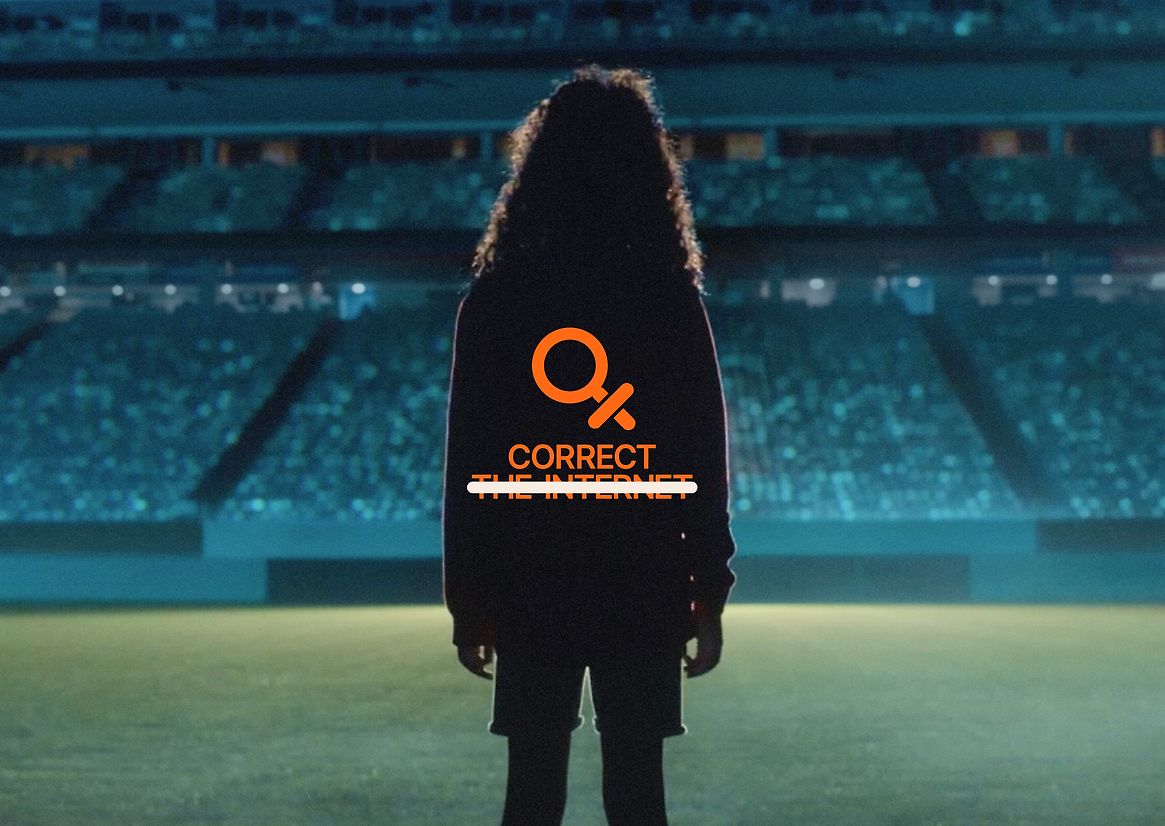
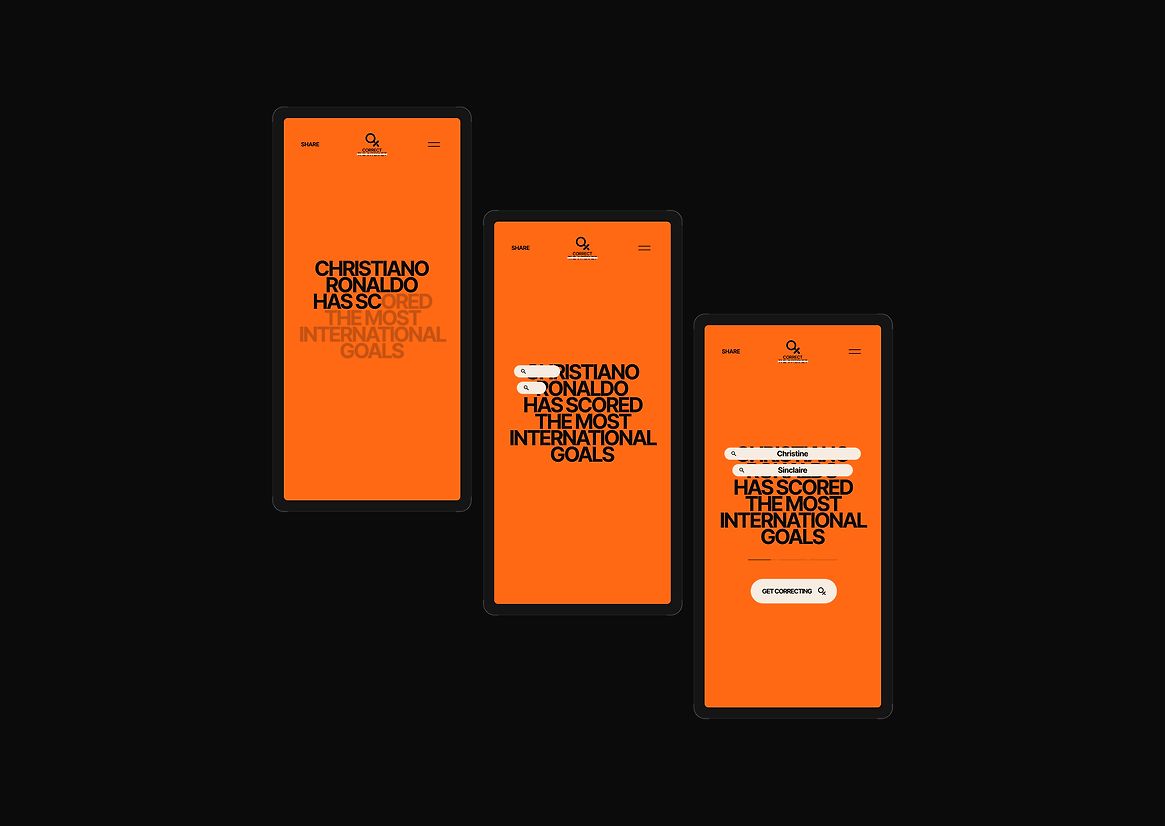
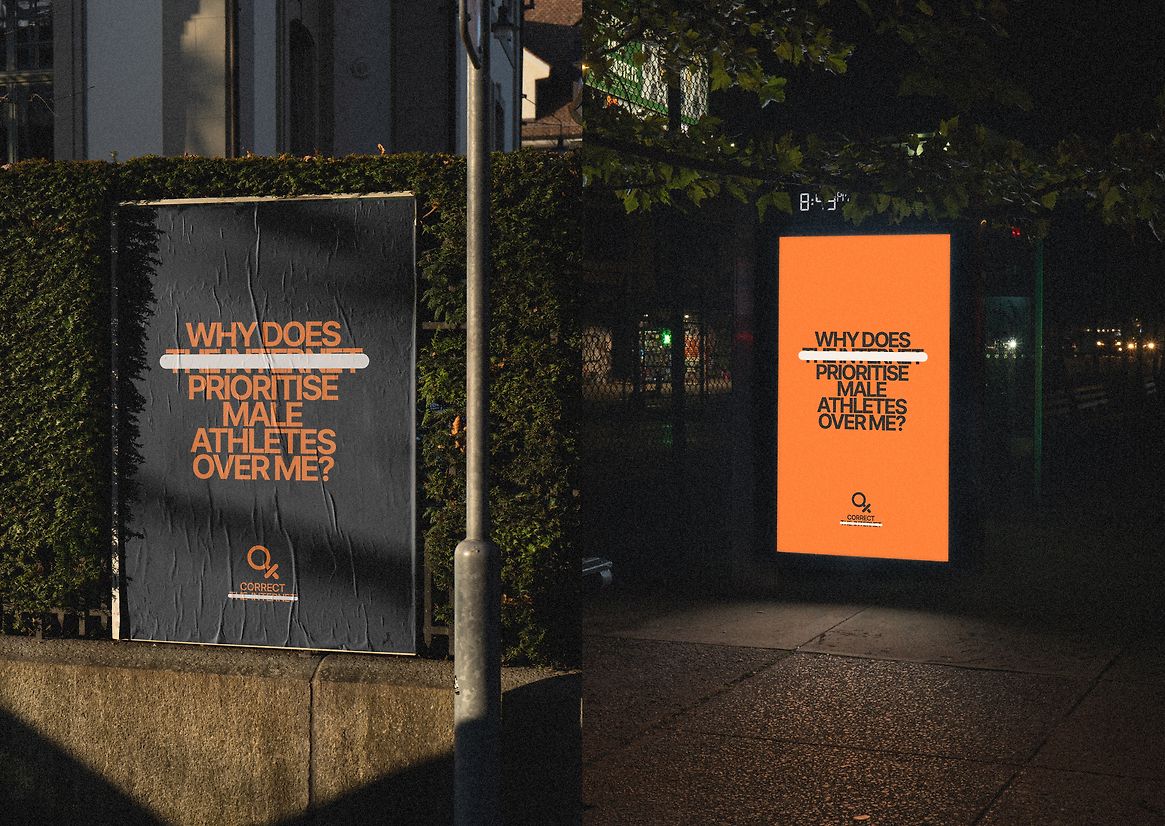
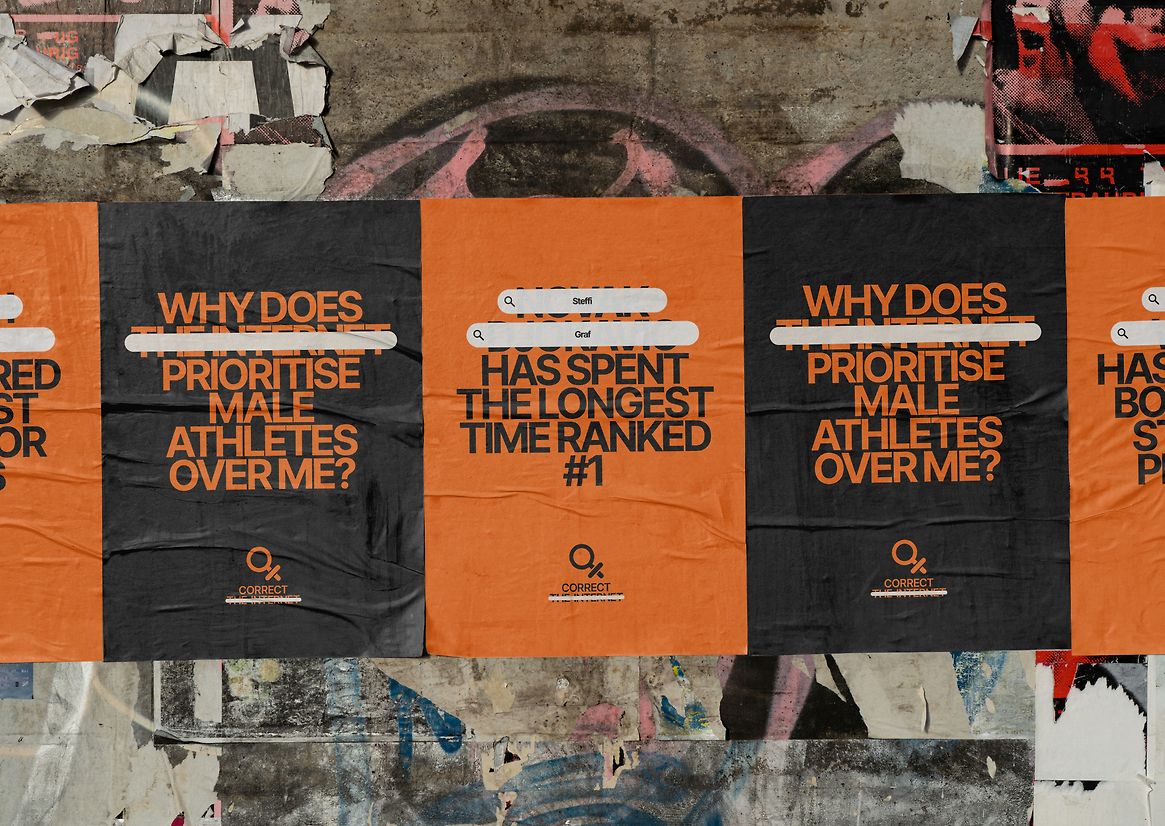
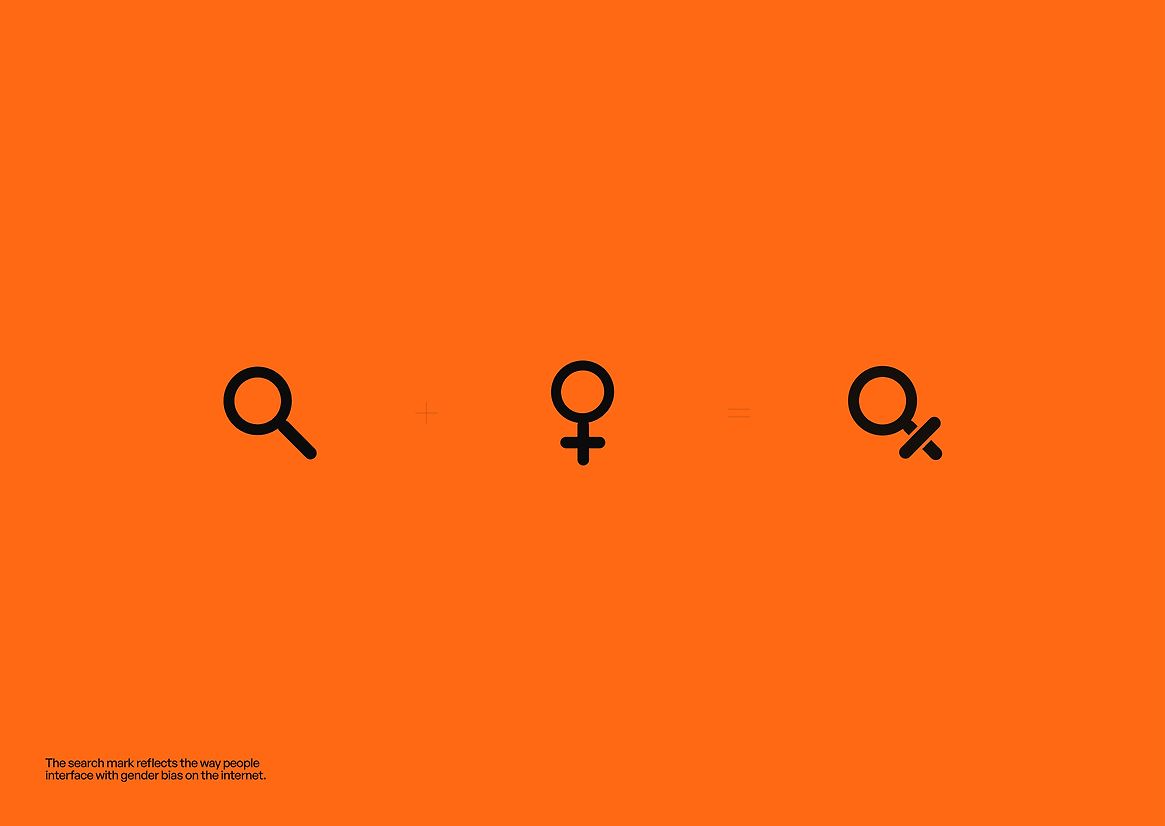
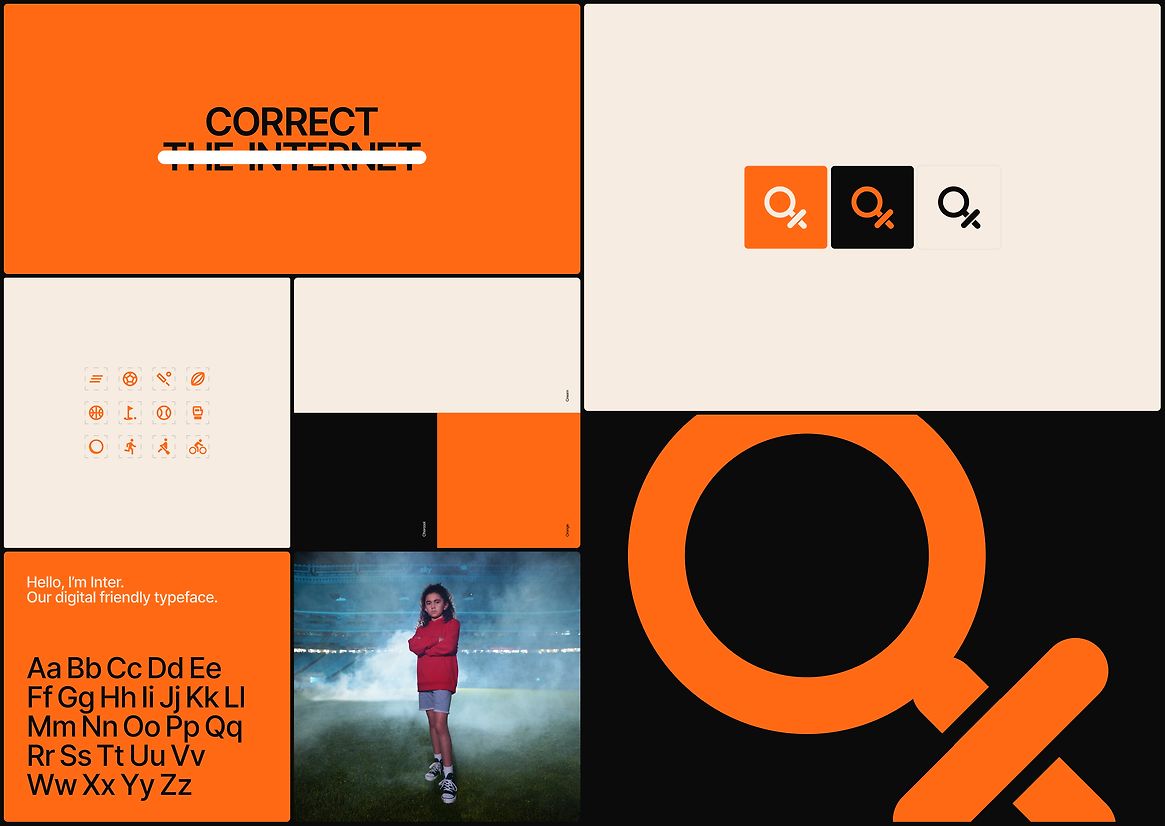
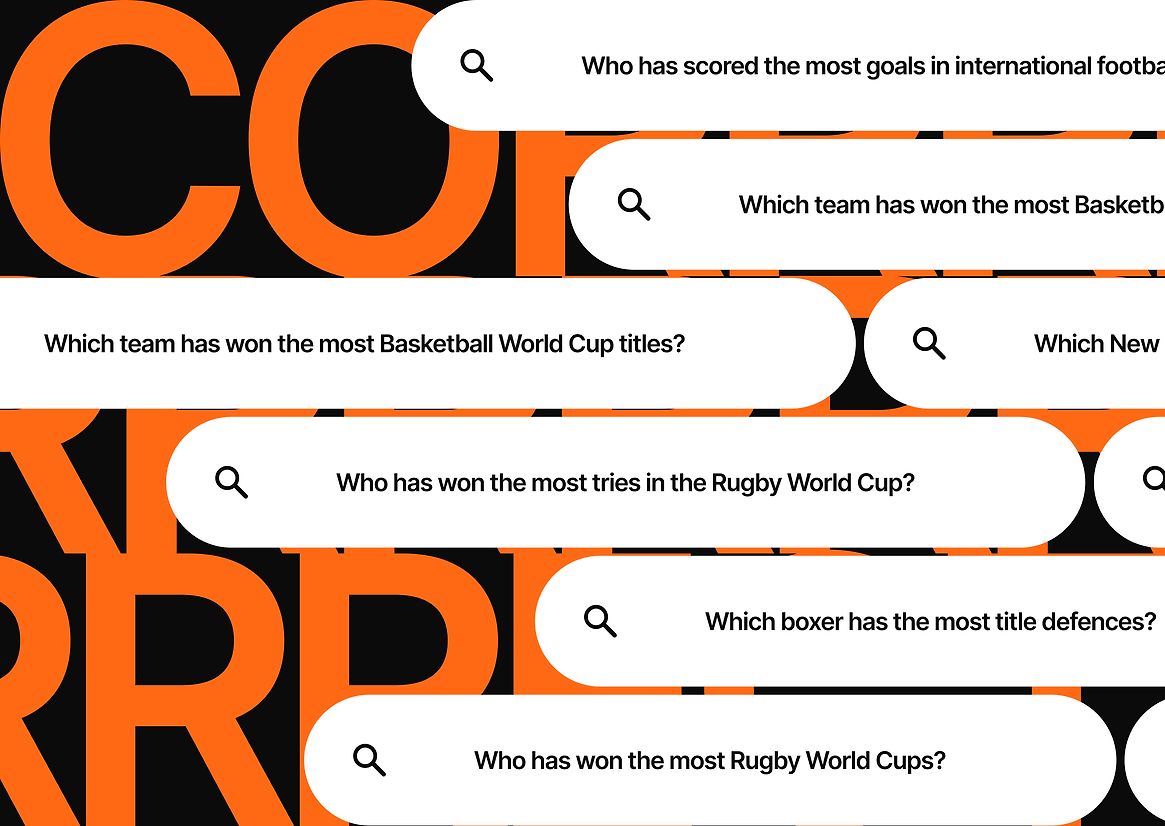
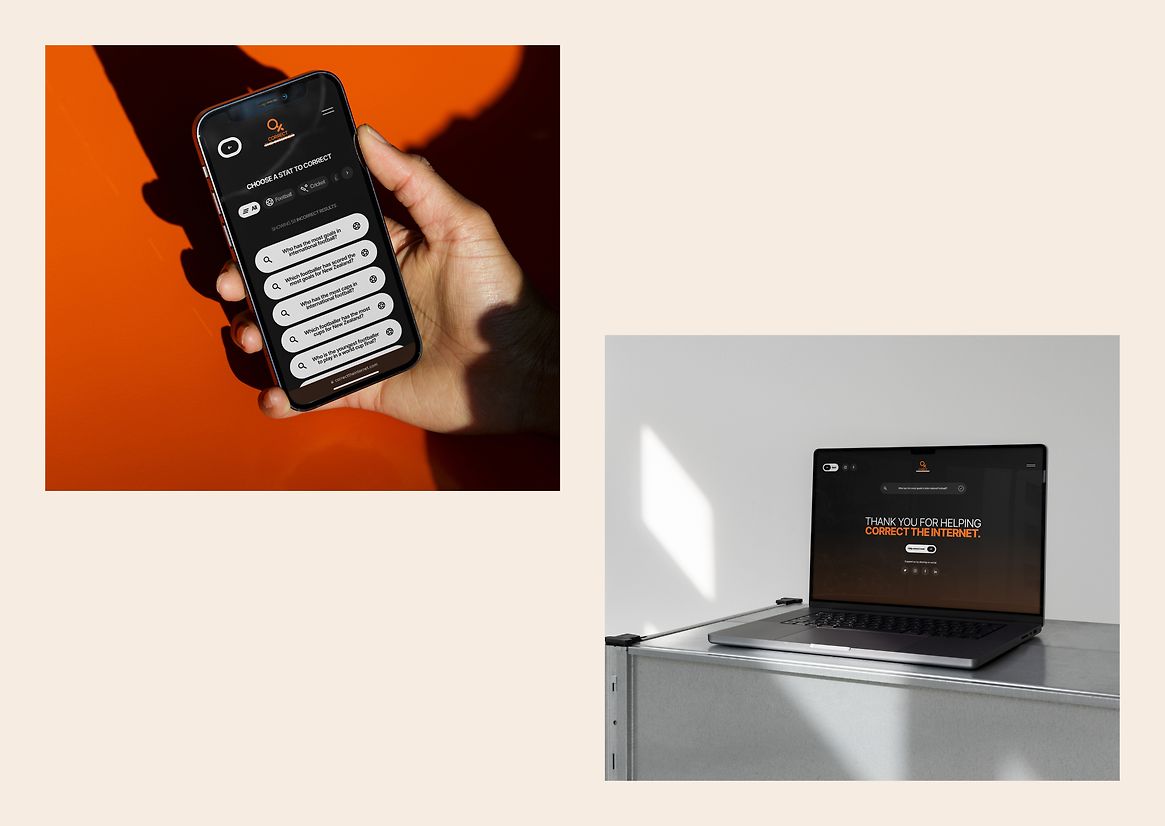
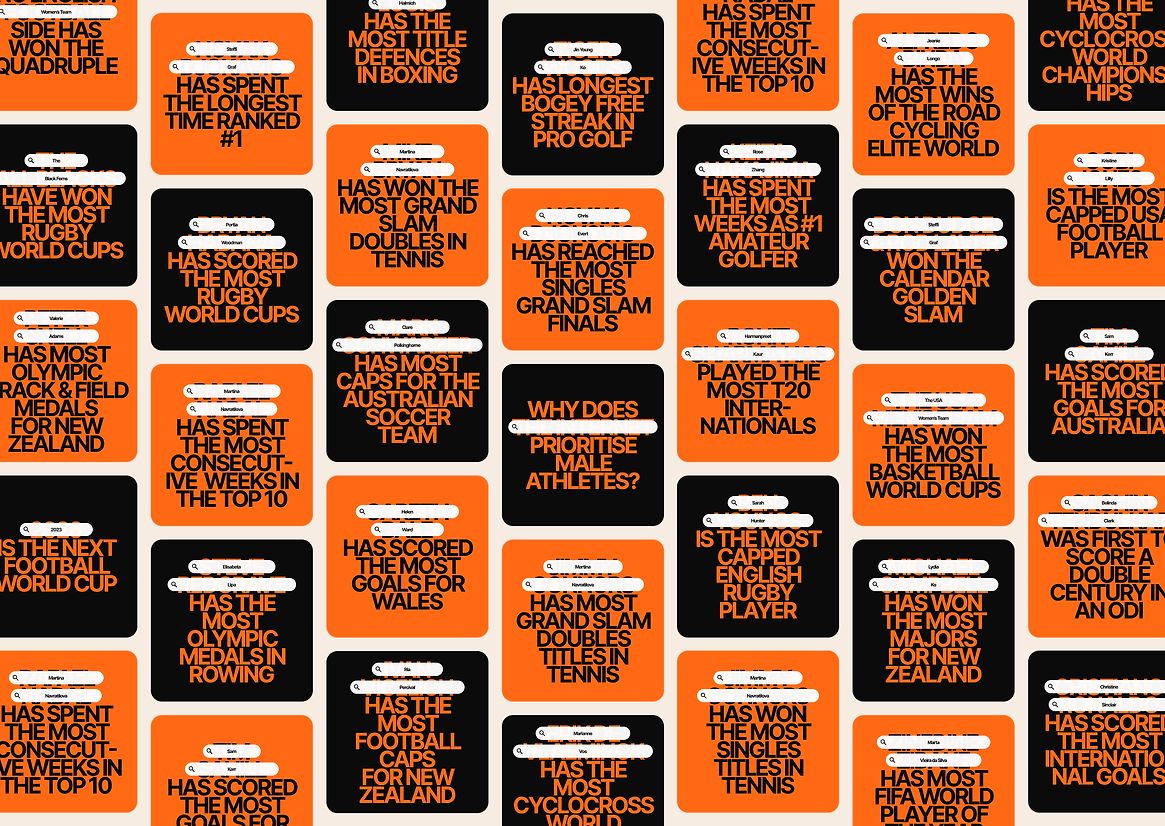
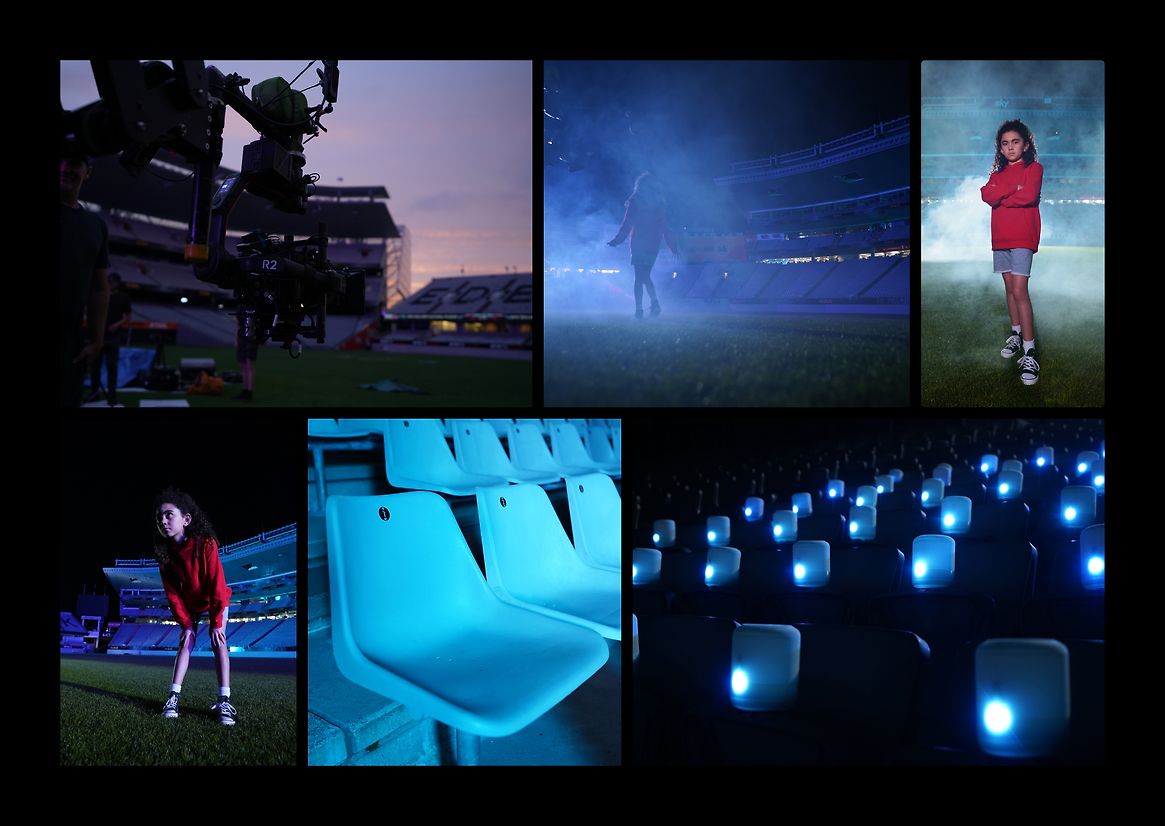
Description:
Many of the world’s biggest sporting records are held by women. But when asked simple, non-gendered questions to find this information, like ‘who has scored the most goals in international football?’, search engines incorrectly favour popular male athletes, ignoring women’s achievements. Algorithms have learnt to tell us Cristiano Ronaldo’s 118 goals are superior to Christine Sinclair’s 190 goals, because that's what they think people want to see.
We created Correct The Internet: a United Nations backed initiative to right the wrongs of the internet. The campaign is the collective work of an international group of like-minded people, led by women’s sport marketing & sponsorship consultancy, Team Heroine, and its founder, Rebecca Sowden.
The problem was first discovered when researching facts about the world’s top footballers. The team discovered that women held many of the world’s biggest sporting records. However, when asking simple, ungendered questions to find these facts, search engines would incorrectly put male athletes ahead of statistically superior sportswomen in their results. The only way to fix this is by users sending feedback to the search engines when they find something wrong so it can be flagged and fixed.
So we built the ‘Correct The Internet’ web tool. A website that serves you with a list of over 50 incorrect, biased search results collected from around the internet, and clear instructions on how to report them with just a couple of clicks – making it easier than ever for users to find and report these inaccuracies in the search engines, on a scale the search engines couldn’t ignore.
We launched our tool with a confronting film that showed what happens when a little girl asks the internet a question and is met with biased results. This was followed with daily social content that highlighted our list of incorrect searches, prompting people to help us report each one, along with street posters, billboards, a PR pack, an educator’s pack, a campaign look book, iconography, a website - and the tool itself.
Inspired by activism design, the campaign uses a simple duotone scheme of orange and black paired with bold typography to maximise its visibility.
The mark comes from a combination of the female symbol and search icon. The crossbar of the female symbol doubles as a crossed-out device echoing the redaction and search bar used in our ‘statistic’ search query.
The search results are overlayed with the correct sportswomen and factually correct information.
Our campaign reached over 1 billion people globally. Had 120+ pieces of media coverage, including BBC, NBC, Fox News, Sky Sport & Forbes. Millions of people pointed out the issue to search engines through our tool, social channels, and the media. And we’re now supported by over 50 global brands, including the United Nations.
When we started, the search results never showed sportswomen. Now we are now beginning to see change to many of the searches, correctly recognizing a female. A problem that has existed within search engines for decades has new momentum and is being solved.